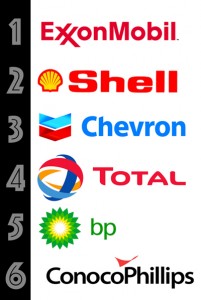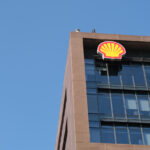Shell now controls 16% of the world’s LNG market, becomes the largest independent producer of LNG
Royal Dutch Shell (NYSE: RDS.B; www.shell.com) has leap frogged to the second largest publicly traded energy company in the world following the completion of its $53 billion acquisition of BG Group.

The deal was originally announced on April 8, 2015. Under the terms of the agreement, BG shareholders would be entitled to receive $5.53 in cash and 0.4454 shares of Shell Class B stock. More than two-thirds of the agreed price at the time of the announcement would come from Shell’s B shares.
The depletion of commodities prices since the announcement has resulted in a reduced value of Shell’s stock and consequently the deal went from $70 billion in April to $53 billion as of Monday. Originally, Shell offered a 50% premium to the market value of BG shares in April, which has now slipped below 10%.
Rising demand for natural gas and increased need for liquefaction capacity of LNG drove the merger agreement. The combined company now controls 16% of the world’s LNG market, and Shell-BG becomes the largest independent producer of LNG. Shell will gain from BG’s liquefaction expertise and existing infrastructure around the globe with liquefaction terminals from Australia to Trinidad and Tobago, a fleet of tankers to transport the super-chilled fuel and an international team of traders.
Shell, already the largest non-state producer of liquefied natural gas, becomes almost twice the size of its nearest competitor, Exxon Mobil Corp. (ticker: XOM; ExxonMobil.com) following the deal.

Shell’s reserves have decreased progressively in three of the last four years, while BG’s have increased in six of the past seven. Since 2010 Shell’s total proved reserves have fallen by 1152 million barrels while BG has added 718 million.
Important disclosures: The information provided herein is believed to be reliable; however, EnerCom, Inc. makes no representation or warranty as to its completeness or accuracy. EnerCom’s conclusions are based upon information gathered from sources deemed to be reliable. This note is not intended as an offer or solicitation for the purchase or sale of any security or financial instrument of any company mentioned in this note. This note was prepared for general circulation and does not provide investment recommendations specific to individual investors. All readers of the note must make their own investment decisions based upon their specific investment objectives and financial situation utilizing their own financial advisors as they deem necessary. Investors should consider a company’s entire financial and operational structure in making any investment decisions. Past performance of any company discussed in this note should not be taken as an indication or guarantee of future results. EnerCom is a multi-disciplined management consulting services firm that regularly intends to seek business, or currently may be undertaking business, with companies covered on Oil & Gas 360®, and thereby seeks to receive compensation from these companies for its services. In addition, EnerCom, or its principals or employees, may have an economic interest in any of these companies. As a result, readers of EnerCom’s Oil & Gas 360® should be aware that the firm may have a conflict of interest that could affect the objectivity of this note. EnerCom, or its principals or employees, may have an economic interest in any of the companies covered in this report or on Oil & Gas 360®. As a result, readers of EnerCom’s reports or Oil & Gas 360® should be aware that the firm may have a conflict of interest that could affect the objectivity of this report.







